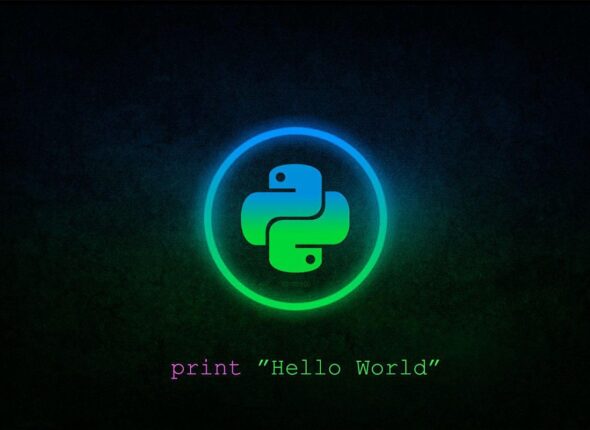What is Ethical Hacking?
Ethical hacking involves the proactive use of hacking techniques and methods to help organizations improve their security by identifying vulnerabilities in their systems and networks. Unlike malicious hackers, ethical hackers have permission from the organizations they work with to probe their defenses.
Ethical hackers employ a variety of tools and techniques that mirror those of potential attackers but with the goal of reporting issues rather than exploiting them. They must adhere to legal and ethical standards, typically outlined in a formal agreement that specifies their scope of work, boundaries, and responsibilities. The insights gained from ethical hacking are used to patch vulnerabilities, enhance security protocols, and ensure that data remains protected, making it an invaluable practice for maintaining the integrity and resilience of technology systems.
Scope
Ethical hacking is not only a highly relevant field today but also one that is poised to become even more critical in the future. As technology continues to advance, the scope and scale of cyber threats expand, making the role of ethical hackers increasingly important. Here are several reasons why ethical hacking is considered futuristic and vital:
- Growing Cyber security Threats
- Advancements in Technology
- Regulatory Compliance
- Shift to Cloud Computing
- Automation and Integration in Ethical Hacking
- Rising Demand for Security Skills
- Job profiles in Data Analytics
Career Opportunities
Pursuing a career in Ethical Hacking can open up a diverse range of opportunities across various sectors. Organizations in nearly every industry require skilled professionals to help protect their data and systems from cyber threats. Here are some of the primary career paths available for someone with ethical hacking expertise:
- Penetration Tester
- Security Consultant
- Cyber security Analyst
- Vulnerability Assessor
- Security Auditor
- Incident Handler/Response Specialist
- Forensic Expert
- Chief Information Security Officer
- Network Security Engineer
- Security Software Developer
- Ethical Hacking Trainer
- Freelance Ethical Hacker
Hiring Companies

Industry Trends

Who can Learn Ethical Hacking?
- IT Professionals: Those who already have a background in information technology, network administration, or system administration may find that ethical hacking can significantly enhance their career prospects.
- Cybersecurity Enthusiasts: Individuals who have a keen interest in cybersecurity and enjoy understanding the intricacies of how computer systems and networks operate might find ethical hacking particularly fulfilling.
- Students and Graduates: Students who are currently in college or recent graduates with degrees in computer science, information technology, or related fields may find that ethical hacking courses can provide them with an edge in a competitive job market, specializing them in a niche but growing field.
- Career Changers
- Security Professionals
- Business Leaders and Managers
- Freelancers and Consultants
Key Differentiators
Easy Courses differentiates itself from others in several ways to stand out in the competitive market. Here are some of those points for your ready reference.

Specialization: Focus on this specific industry segment within the field of technology training which makes us an expert in this domain.
High-Quality Content: Develop and deliver high-quality training content that is comprehensive, up-to-date, and relevant to industry dynamics. Invest in experienced instructors, subject matter experts, and instructional designers to ensure the content is engaging, informative, and effective.
Interactive Learning Experience: Offer interactive and engaging learning experiences that go beyond traditional lectures or presentations. Incorporate hands-on exercises, case studies, simulations, and real-world projects to enhance learner engagement and retention.
Flexible Learning Options: Provide flexible learning options to accommodate the diverse needs and preferences of learners. Offer both in-person and online training formats, self-paced and instructor-led courses, as well as blended learning approaches that combine online and offline components.
Personalized Learning Paths: Offer personalized learning paths or customized training programs to cater to the specific goals, skill levels, and learning styles of individual learners or organizations. Provide assessments, pre-tests, or skills gap analyses to tailor the training content and pace to each learner’s needs.
Industry Partnerships: Forge strategic partnerships with industries and technology vendors to enhance the credibility and relevance of the training programs. Collaborate with industry experts or guest speakers to provide insights and perspectives from the field.
Certifications and Credentials: Offer recognized certifications, credentials for completing training programs. Partner with certification bodies or industry leaders to provide certification exams or pathways that add value to the learners’ resumes and career prospects.
Career Services and Support: Provide additional support services such as career counseling, job placement assistance, resume writing workshops, or networking opportunities to help learners transition into new roles or advance their careers after completing the training programs.
Continuous Improvement: Continuously monitor and evaluate the effectiveness of training programs through learner feedback, performance metrics, and industry benchmarks. Regularly update and improve the content, delivery methods, and learning resources to ensure relevance and quality.
Customer-Centric Approach: Focus on building strong relationships with customers and learners by delivering exceptional service, responsiveness, and support throughout the learning journey. Listen to customer feedback, address their concerns promptly, and strive to exceed their expectations.
Modules / Syllabus
- Introduction to Ethical Hacking
- Foot printing and Reconnaissance
- Scanning networks
- Enumeration
- Vulnerability analysis
- System hacking
- Malware threats
- Sniffing
- Social engineering
- Denial of service
- Evading ids, firewalls and honey spots
- Hacking web servers
- Hacking web applications
- SQL injection
- Hacking wireless networks
- Hacking mobile platforms
- IoT hacking
- Cloud computing
- Cryptography
Duration: 1.5 months on Regular track and 1 month on Accelerated Learning Easy Courses also provides customized course content and corresponding duration on special requests. This is mainly applicable for companies nominating their employees for re-skilling.
Methodology
Easy Courses follow specific training methodologies for Full Stack Development course that caters to diverse learning styles of participants while ensuring comprehension, retention, and practical application of concepts. Here are some methodologies that can be employed:

- Lecture-based Learning
- Hands-on Practice
- Case Studies and Real-world Projects
- Group Work and Collaboration
- Feedback and Assessment
- Mentorship and Coaching
- Continuous Learning and Resources
By integrating these effective training methodologies, a Ethical Hacking course can offer a comprehensive and engaging learning experience that equips participants with the knowledge, skills, and confidence to succeed in the field of Cyber Security.







